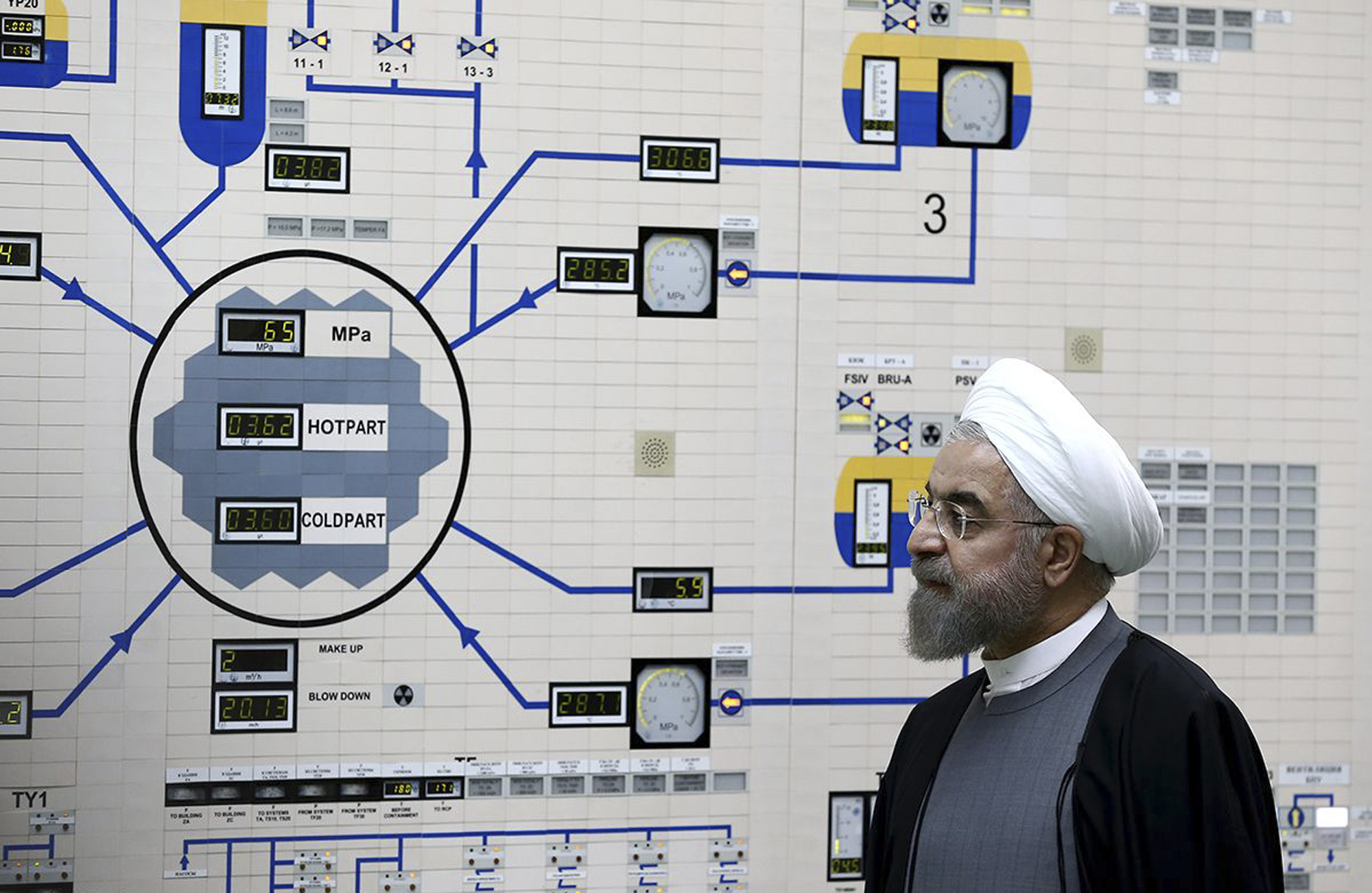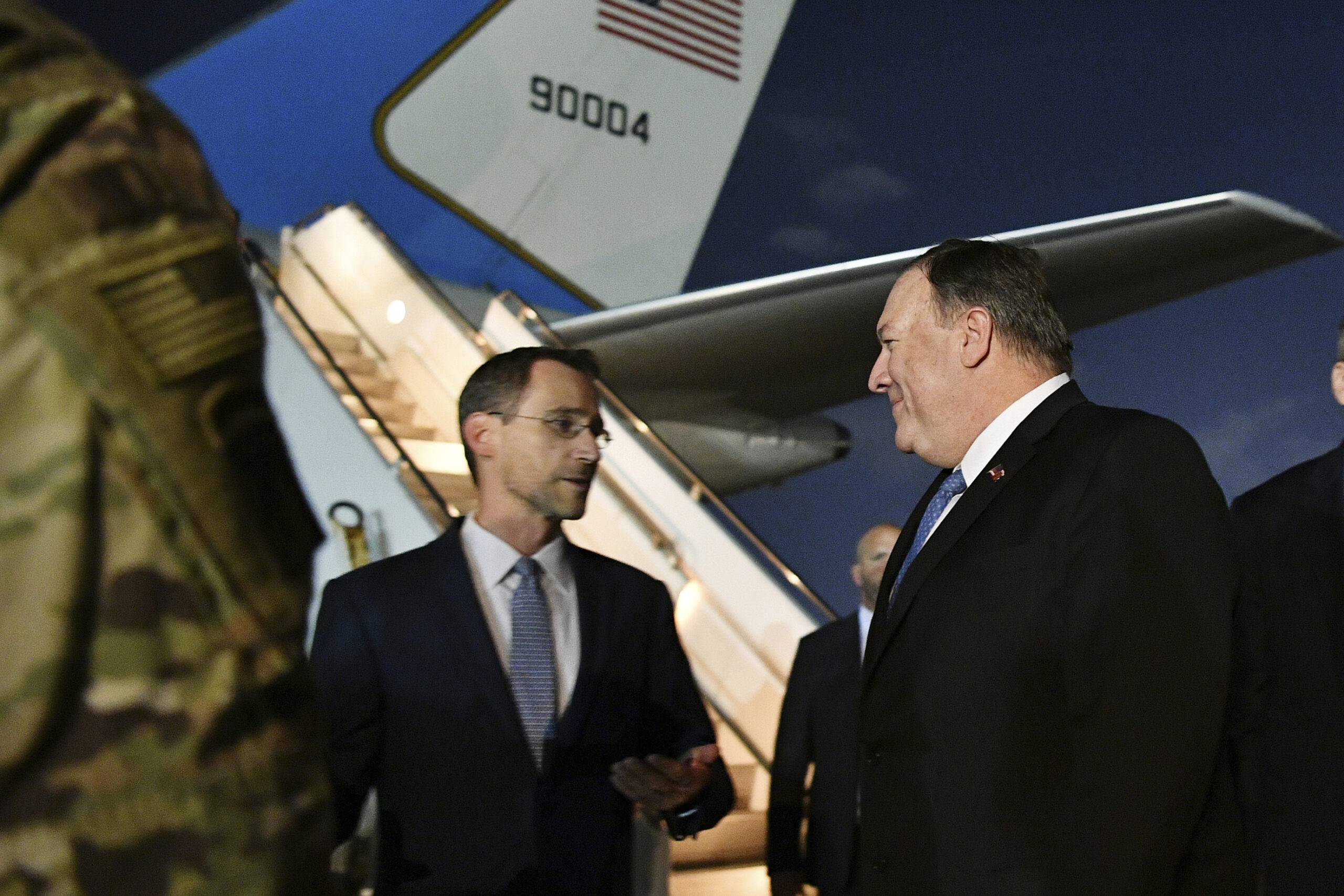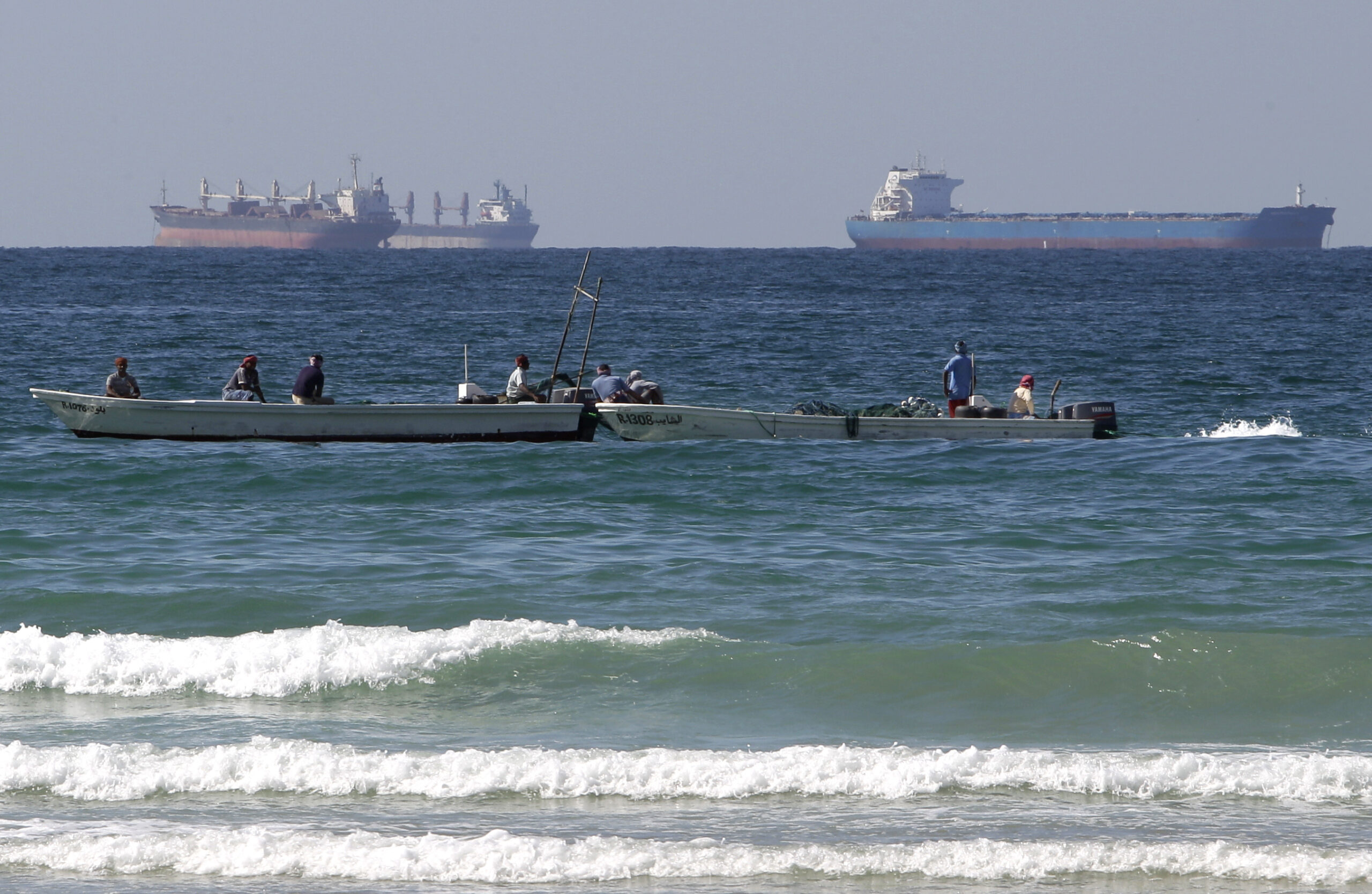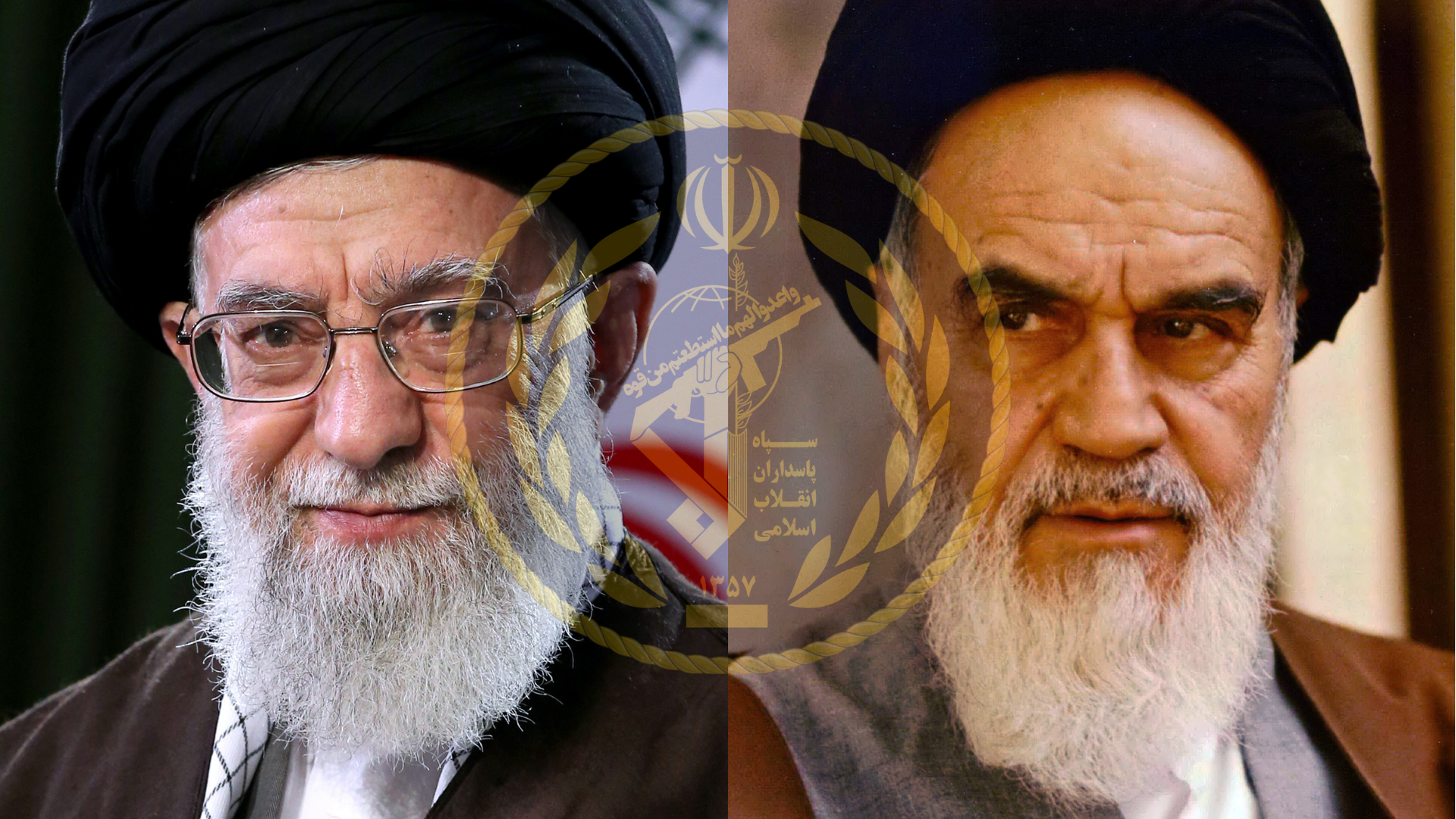Tehran’s Strategy: Heroic Flexibility, Strategic Patience, or Active Resistance?
Iran's political factions appear to have their own distinct perceptions of the Trump administration’s Iran policy and try hard to take advantage of that policy in their factional struggle for power.

Is the United States trying to change the behavior of the Islamic Republic, or is it pursuing a regime-change policy in Iran? The factionalized leadership in Tehran has wrestled with this question since the revolution of 1979 and establishment of the Islamic Republic. In the light of the “maximum pressure campaign” of President Donald J. Trump’s administration, and reports citing contingency plans for the deployment of 120,000 troops to the Middle East, the question has become all the more pressing for the regime in Tehran.
To judge by Persian-language open source material, Iranian President Hassan Rouhani, Supreme Leader Ayatollah Ali Khamenei, and the Islamic Revolutionary Guard Corps not only appear to have their own distinct perceptions of the Trump administration’s Iran policy, they also try hard to take advantage of that policy in their factional struggle for power.
A survey of public statements and other reactions by Iranian political factions to the coercive diplomacy of former President Barack Obama’s administration and different components of the Trump administration’s maximum pressure campaign provides important insights into their threat perception, and strategy to counter the pressure from Washington while simultaneously prevailing in the struggle for power in Iran.
Heroic Flexibility in the Face of Obama’s Coercive Diplomacy
The Trump administration is not the first to employ coercive diplomacy toward the Islamic Republic. Obama did so, as well, which prompted Rouhani and his technocratic government to attempt to reach a negotiated solution to Iran’s controversial nuclear program. Such a solution was seen as not only helping Rouhani deliver his election promise of removing the international sanctions regime and improving economic conditions for Iranians, but also solving the crisis in relations with the United States, which over the years has helped the IRGC cement its control over the Islamic Republic.
Under the extreme pressure of international sanctions and facing the prospect of financial meltdown, Rouhani managed to persuade Khamenei to show “heroic flexibility” and publicly support the nuclear negotiators and endorse the Joint Comprehensive Plan of Action, or Iran nuclear deal.
As the main driver behind Iran’s nuclear program, the IRGC would have emerged as the custodian of an Iranian nuclear bomb. However, in recognition of Iran’s acute economic problems, and expecting to benefit from the opening of Iran’s economy to foreign direct investments, the IRGC did not actively oppose the nuclear negotiations or the outcome. Although, the IRGC also did not publicly endorse the JCPOA.
Strategic Patience
The Trump administration’s May 8, 2018 announcement of the U.S. withdrawal from the nuclear deal, and reinstatement of U.S. sanctions with the expressed goal of making a “new and lasting deal” that eliminates “the threat of Iran’s ballistic missile program; … its terrorist activities worldwide; and … its menacing activity across the Middle East,” impacted all three factions in Iran. Rouhani and the technocratic elites of the Islamic Republic, who had invested their political capital in the JCPOA, lost all credibility after the Trump administration’s withdrawal from the nuclear deal. Khamenei too was affected and, for the first time in his political career, admitted he was mistaken to authorize the nuclear negotiations. The IRGC, on the other hand, which never publicly endorsed the nuclear deal, was unharmed.
But all three factions, in spite of uttering harsh words and anti-American theatrics, displayed strategic patience. Khamenei, addressing the public on May 9, 2018, accused the United States of looking for various pretexts to overthrow the Islamic Republic and instructed the government to remain committed to the nuclear deal but to get “credible guarantees from the European” powers. Rouhani followed suit on live television by emphasizing Iran’s commitment to the nuclear deal but also added: “I have instructed the Atomic Energy Organization [of Iran] to prepare for re-activation of unrestricted industrial [scale] enrichment [of uranium].” On the same day, Major General Mohammad Ali Jafari, then IRGC chief commander, congratulated Iranians upon the U.S. withdrawal from the nuclear deal, and claimed he knew all along Washington was not trustworthy. However, rather than demanding Iran’s withdrawal from the JCPOA, Jafari emphasized Iran’s unwillingness to compromise its ballistic missile arsenal and program to accommodate Washington’s new demands.
The Islamic Republic has demonstrated a similar strategic patience toward Israel in Syria. As the regime of President Bashar al-Assad stabilized its rule over large parts of Syria, the IRGC and allied militias’ attempt at securing a permanent presence in Syria provoked a sustained Israeli bombing campaign against Iranian-allied positions in that country. Yet Iran, with one notable exception, has abstained from retaliating for Israeli attacks and, as opposed to much-celebrated funeral services of those killed in the fight against the Islamic State in Iraq and the Levant, tries hard to keep its losses to the Israel Defense Forces secret.
Similarly, Iran’s Supreme National Security Council responded to the State Department’s terrorist designation of the IRGC by declaring the U.S. Central Command a terrorist organization without taking further measures. Washington’s decision not to renew exemptions to buyers of Iranian oil, no longer permitting Iran to enrich uranium, and even imposition of sanctions against Iran’s non-oil sector followed suit without Tehran taking active counter measures.
Rouhani, Khamenei, and the IRGC appeared to be waiting the Trump administration out, hoping for a new administration with a new Iran policy.
Active Resistance
Tehran’s strategic patience, however, possibly came to an abrupt end in May. On May 5, National Security Advisor John Bolton, in a written statement, reported that the United States was deploying the USS Abraham Lincoln Carrier Strike Group to the Gulf in response to “escalatory indications and warnings” and with the intention “to send a clear and unmistakable message to the Iranian regime that any attack on United States interests or on those of our allies will be met with unrelenting force.”
On May 7, Secretary of State Mike Pompeo abruptly canceled his visit to Berlin and made an unscheduled trip to Iraq. He did not answer questions about the specific nature of Iran’s “escalation,” but CENTCOM spokesman Captain Bill Urban said there were “indications that Iranian and Iranian proxy forces were making preparations to possibly attack U.S. forces in the region.” CNN, quoting unnamed U.S. officials, further reported that the United States had received intelligence about Iran moving short-range ballistic missiles aboard boats in the Gulf.
The IRGC remained silent about specific accusations of Iran arming its boats with ballistic missiles, but Brigadier Ramezan Sharif, IRGC spokesman, speaking in Anzali in northern Iran, accused the United States of orchestrating “a vast psychological operation against the Iranian nation,” and vowed to neutralize “conspiracies of the enemies of Islam and the revolution.”
On May 8, Rouhani, in response to U.S. pressure from outside and most likely facing pressure from the IRGC to retaliate against U.S. sanctions, in a letter to the governments of France, Britain, China, Germany, and Russia on the anniversary of the U.S. withdrawal from the JCPOA, expressed his government’s decision to “reduce some of its obligations under the nuclear deal.”
On May 13, four ships were targeted near the strategic United Arab Emirates port of Fujairah, in what the UAE described as a “sabotage attack.” The daily newspaper, Javan, which is close to the IRGC, quoted Lebanese analysts who claimed the attacks were Israeli false flag operations in an attempt to ignite a war between Arabs and Iranians. However, it seems much more likely the attacks were the IRGC flexing its muscles in response to the declared U.S. goal of bringing Iran’s oil exports down to zero.
Risk of War
U.S. and Iranian leaders emphasize they are not seeking war. Disentangling the United States from wars in the Middle East was one of Trump’s main campaign themes, and, now as president, he is probably just as disinclined to start a war against Iran. The regime in Tehran, acutely aware of the formidable might of the United States, is just as wary of starting a war it knows it will lose.
However, both countries may be inching toward a situation in which miscalculation or accidents risk starting a military confrontation. If the IRGC, convinced that the Trump administration is aiming to bring about the economic implosion of the regime rather than pursuing a land invasion of Iran, and calculating a state of heightened tensions strengthens its hand in the domestic struggle for power in Iran, sets aside its strategic patience and pursues a policy of active resistance, this could increase the risk of an unwanted war.
The views represented herein are the author's or speaker's own and do not necessarily reflect the views of AGSI, its staff, or its board of directors.





















